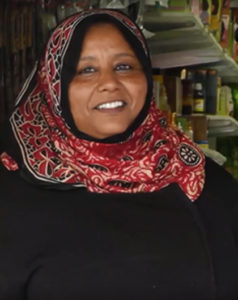Migrant business thriving in Australia – report
 Migrants and refugees run around a third of all small businesses in Australia, according to a new report that challenges common perceptions that migrants can be a drain on the national economy.
Migrants and refugees run around a third of all small businesses in Australia, according to a new report that challenges common perceptions that migrants can be a drain on the national economy.
The ‘Migrant Small Business Report’, produced by insurance company CGU and released this week, says most of these entrepreneurs had no previous business experience before setting up enterprises in Australia.
Based on a survey of more than 900 business owners, it shows migrant owners are more highly educated than their non-migrant counterparts.
The report also found migrants and refugees are determined to create jobs for themselves if they can’t find one.
While the main motivator for migrants starting up their own businesses was greater independence, they were also more likely to because they could not find other work – 16 per cent compared to 10 per cent for non-migrants, the report found.
More than 1.4 million Australians currently work for migrant employers but that could climb by a further 200,000 over the next five to 10 years, with a third of migrant-owned businesses planning to hire more people as their businesses expand.
The report found 51 per cent of migrant business owners have a bachelor degree or higher, compared to 38 per cent of non-migrant owners and 83 per cent did not own a business before coming to Australia
It found 52 per cent said they went into business to become more independent and annual revenue for migrant-owned businesses is 53 per cent higher than non-migrants.
As many as 13 per cent of migrant-owned businesses surveyed earned more than $3 million per year, compared with just 8 per cent of non-migrant businesses.
The report found migrants were most likely to go into property and business services (22 per cent), retail and hospitality (15 per cent), and community services and education (14 per cent).
It found a quarter of migrant owned businesses were training young people, compared to 19 per cent for non-migrant owners.
Through perseverance and determination, a young Afghani refugee has built a successful business up from the ground.
Twenty-four year old Khan Hazara is the owner and manager of a burgeoning halal supermarket in Hampton Park, in Melbourne’s south east.
His journey is a fascinating one, which has taken him from his native Afghanistan to Pakistan and finally Australia.
Born in Afghanistan, Khan belongs to a minority ethnic group known as the Hazaras, the third largest in his home country.
After arriving Australia as an asylum seeker, he began studying a diploma in business management while working night shifts as a courier, and within a year he was able to buy a small wholesale bakery in Doveton.
To get his bakery off the ground, Khan started working hours that most of us would think unimaginable.
“I worked at the bakery at night baking bread. From there I would deliver the bread in the early hours of the morning, and would then continue with my studies learning English with AMES in the day time,” he said.
“For more than a year, I was only getting three to four hours of sleep each day.
“But the hard work paid off, as my business at the bakery increased substantially,” Khan said.
After the completion of his diploma, Khan decided to extend the bakery business into a full supermarket.
And for Eritrean refugee Nadia Hassan Australia has truly proved to be the land of opportunity.
The mother of three has built a thriving import and retail business in the heart of multicultural Footscray.
She says that hard work, persistence and an eye for market gaps have been the secrets to her success.
Nadia started importing food lines from Africa and the Middle East for her community.
Her business has grown and now she imports food products from across the globe as well as health and beauty lines.
“Running the business has made me feel part of the community. I feel very settled here now – this is my home,” Nadia said.
“Now I feel very about good about what I have done in my life. I feel lucky to be here in Australia and to have the opportunity to do something that I wanted to do,” she said.
In 2016, an audit of migrant and refugee settlement agency AMES Australia’s asylum seeker client base recorded that 100 clients had started a small business either as a sole trader or with other owners/partners.
The most common areas of enterprise were: retail, retail hospitality (restaurants), catering, clothes making, tiling, painting, salvage, dog walking, home maintenance, transport-freight, transport-personal, photography and labouring contracts.
CGU Insurance spokeswoman Kate Wellard said the survey showed migrants were having a positive impact on Australia.
“The significant contribution migrant small business owners make to our country is largely an untold story,” Ms Wellard said.
“Our research helps challenge perceptions that our migrants are taking more than they’re giving … and the positive impact they have on our business,” she said.
Laurie Nowell
AMES Australia Senior Journalist












